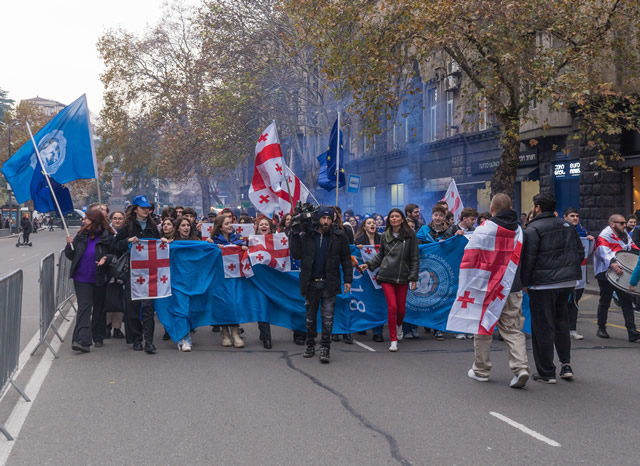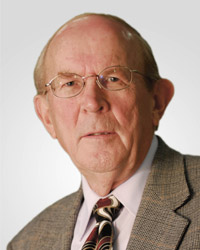
GEORGIA - To Be EU or Not to Be
Live television coverage showed police in the former Soviet republic of Georgia beating and arresting an opposition leader during a raid on his party’s offices. The scenes played out on the 10th day of violent clashes in capital city Tbilisi between police and protesters furious about the Georgian prime minister’s decision to put talks on joining the European Union on hold.
The protests have been driven largely by what many Georgians see as the governing Georgian Dream party’s increasing authoritarian tendencies. In power since 2012, the ruling party led by billionaire Bidzina Ivanishvili initially promised democratic reforms and closer ties with Europe and the West, including the EU.
Critics argue that over time, the party has shifted toward Russia, undermining many Georgians’ aspirations to see their country join the EU.
Critics, including the president, highlight the recent adoption of the foreign agents law, which requires all non-profit organizations and media outlets that receive foreign funding to register as “foreign agents” in Georgia, as an example of the ruling party dragging the country closer to Russia’s authoritarian model.
-www.cbsnews.com, 12 December 2024
Arno's Commentary
The country of Georgia, a former Soviet Republic, desires closer ties with the West. Not so, says the newly elected government.
For the almost 5 million inhabitants, adherence to the Christian religion stands at 87.3%. Surprisingly, only 1.2% are “unspecified.” Thus, religion is extremely important to the Georgians. Compare that to the former East Germany, which was also under Soviet influence. A census in 2022 showed that half of the population of former East Germany was “unaffiliated” religiously. Later research in 2023 found that 46% of East Germans are irreligious, which normally is equivalent to atheism.
Georgia is bordered by the Black Sea in the west, Russia in the north, and in the south, Armenia (similarly religious: 97% Armenian Apostolic Christian), as well as the Muslim-majority nations of Turkey and Azerbaijan.
Most experts in international affairs, particularly in Europe, see the picture changing once the Russia-Ukraine War has ended.
What we know for sure is: Wars and rumors of wars, commotions and controversies will continue to exist until the Prince of Peace arrives in Jerusalem. He will then make an end of all the nations, abolish the military, and institute real, righteous peace on planet earth.



